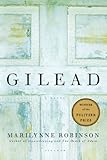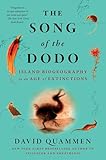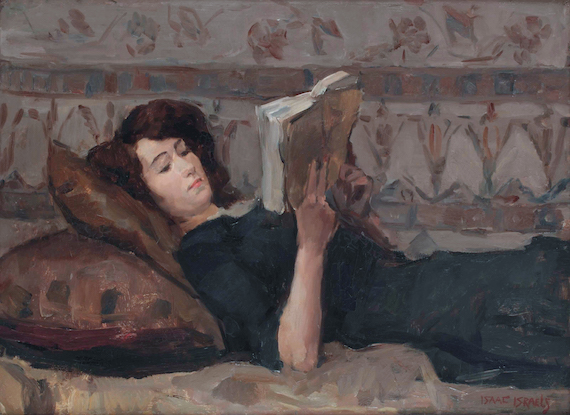“What do you like to read?” It’s a perfectly reasonable question, but it always makes me flinch. I am a reader—that is my identity before anything else, including writer, partner, or mother—but I have no idea how to answer that question.

 First of all, just right off the bat, the question assumes that I am a coherent person from moment to moment with a consistent and legible taste in literature. That I chase after books which satisfy some sort of personal criteria for literary bliss, and as I read, I measure the pages in front of me against this ruler. Fair enough. One of my friends looks for books about messy, tangled family dynamics that end with all the loose strands woven in: The Nix by Nathan Hill. Another only reads books with a strong sense of place: The Greenlanders by Jane Smiley or The Shipping News by Annie Proulx. A third prefers introspective or philosophical novels with a spiritual dimension: Gilead by Marilynne Robinson. They wield these criteria like extensions of their names: “I am the one who reads [fill in the blank].” But I have no—and I mean no—such criteria. I’ll read anything.
First of all, just right off the bat, the question assumes that I am a coherent person from moment to moment with a consistent and legible taste in literature. That I chase after books which satisfy some sort of personal criteria for literary bliss, and as I read, I measure the pages in front of me against this ruler. Fair enough. One of my friends looks for books about messy, tangled family dynamics that end with all the loose strands woven in: The Nix by Nathan Hill. Another only reads books with a strong sense of place: The Greenlanders by Jane Smiley or The Shipping News by Annie Proulx. A third prefers introspective or philosophical novels with a spiritual dimension: Gilead by Marilynne Robinson. They wield these criteria like extensions of their names: “I am the one who reads [fill in the blank].” But I have no—and I mean no—such criteria. I’ll read anything.

 But a very specific anything. I’ve never in my life read randomly. I’ve never—not once—walked into a bookstore and come out with a book I hadn’t heard of before. Usually I am in the midst of a reading project. Some of these are self-determined, like when I mined a vein about evolution and the link between animal behavior and ecosystem in The Beak of the Finch by Jonathan Weiner and The Song of the Dodo by David Quammen. And some choose me, such as when Elena Ferrante’s Neapolitan Quartet demanded that I read the novels of Christa Wolf. Sometimes I read to draw closer to a person—and sometimes that even works. My grandmother recently began reading again after emerging from a years-long depression, so I’ve been reading and sending to her a steady stream of David Balducci thrillers and novels about the Greatest Generation like John Crowley’s Four Freedoms.
But a very specific anything. I’ve never in my life read randomly. I’ve never—not once—walked into a bookstore and come out with a book I hadn’t heard of before. Usually I am in the midst of a reading project. Some of these are self-determined, like when I mined a vein about evolution and the link between animal behavior and ecosystem in The Beak of the Finch by Jonathan Weiner and The Song of the Dodo by David Quammen. And some choose me, such as when Elena Ferrante’s Neapolitan Quartet demanded that I read the novels of Christa Wolf. Sometimes I read to draw closer to a person—and sometimes that even works. My grandmother recently began reading again after emerging from a years-long depression, so I’ve been reading and sending to her a steady stream of David Balducci thrillers and novels about the Greatest Generation like John Crowley’s Four Freedoms.
Part of the problem is in the word “like,” that little heart we tap ten thousand times a day. I like lots of things, so many things, but I am not guided by what I like. I regularly read books that I know I’ll dislike, not to hate-read, but because I’m just plain curious—because there is something in there I need that is not pleasure.

 After reading Claire Dederer’s memoir, Love and Trouble, and feeling disappointed by its surprisingly timid take on the dissatisfactions of middle-aged marriage, I picked up Sarah Dunn’s The Arrangement, a novel about the rueful complications that ensue when a couple decides to open their marriage for six months. My suspicion that any chance of the characters developing true dimensionality would be sacrificed in the quest for a punchline was amply confirmed. The book read like a novel-length screenplay treatment with nary a moral qualm and, strangely, no sex. But that was entirely beside the point for my reading project. Female desire is having a literary moment—have you noticed?—and I wanted to know the content of that conversation. Now I know.
After reading Claire Dederer’s memoir, Love and Trouble, and feeling disappointed by its surprisingly timid take on the dissatisfactions of middle-aged marriage, I picked up Sarah Dunn’s The Arrangement, a novel about the rueful complications that ensue when a couple decides to open their marriage for six months. My suspicion that any chance of the characters developing true dimensionality would be sacrificed in the quest for a punchline was amply confirmed. The book read like a novel-length screenplay treatment with nary a moral qualm and, strangely, no sex. But that was entirely beside the point for my reading project. Female desire is having a literary moment—have you noticed?—and I wanted to know the content of that conversation. Now I know.
You can see how exceedingly rule-bound my reading is. And yet I still haven’t described it to you, haven’t even come close to a polite, conversational answer to the question, “What do you like to read?” It is a deeply uncomfortable subject for me.
We’ve come now to the real risk at the heart of any honest answer to this question, the social stakes of it all. I sound like an incorrigible snob: I can see right through all the books that most people like; I am better than they are; I am guided not by pleasure pleasure but by some higher impulse.
That’s not it, though. Perhaps there is a distinction to be made between readers and Readers. Between people who read books, just as easy as that, and people who use books to build their entire selves. The distinction here has nothing to do with the number of books read per month, hierarchies of taste, or education. Those who are simply readers are people who are made happy by books, people who like to talk about what they’ve read, people for whom joining a book group makes sense, because it is straightforward for them to translate the solitary act of reading into a social connection.
Readers with a capital R, on the other hand, read from a sense of absence, of pursuit, of perturbation. Reading is too deeply personal to discuss with others, in part because it is the personal: reading as interiority. I read to listen to myself think. When a book is open in front of me, I am anonymous to the author, oblivious to my own face, and completely self-conscious: criticism as life.
As Pierre Bayard theorizes in How to Talk About Books You Haven’t Read (a book whose mordant wisdom is not captured by that inapt title), reading must always entail loss. Bayard is about as far away from Roland Barthes‘s plaisir du texte as a Frenchman can get. For him, we are forever searching for a book that can never precisely match our own “inner book,” what he calls a “phantasmagorical object that every reader live to pursue, of which the best books he encounters in his life will be but imperfect fragments, compelling him to continue reading.” And, for some of us, to begin writing.
 Yet even those best books, the ones that interlock with our own need for them, are always receding from us, never again coinciding with the text we first read, disintegrating in memory. A constituent part of reading—for the Reader, at least—is this “anguish of madness.” I am reminded of Audrey Niffenegger’s The Night Bookmobile, and the character Alexandra’s harrowing quest to inhabit the chamber containing every single book she’s ever read. Those of us who read to voice our own interior monologues are doomed—yet also privileged. Ours is an urgent project that will take a lifetime to complete, and our material will never be exhausted.
Yet even those best books, the ones that interlock with our own need for them, are always receding from us, never again coinciding with the text we first read, disintegrating in memory. A constituent part of reading—for the Reader, at least—is this “anguish of madness.” I am reminded of Audrey Niffenegger’s The Night Bookmobile, and the character Alexandra’s harrowing quest to inhabit the chamber containing every single book she’s ever read. Those of us who read to voice our own interior monologues are doomed—yet also privileged. Ours is an urgent project that will take a lifetime to complete, and our material will never be exhausted.
I’ve recently come up with a standard answer to the question, “What do you like to read?” and I experimented with it at a book club I visited when they read my book and at a dinner party with new friends. “I like novels with unreliable narrators,” I said. “Like me.” Both times I got puzzled looks and head tilts. Failed experiment. But you know what I mean, don’t you? You know what it feels like to be both disordered by and constructed of books, right? If the answer is yes, nod your head from behind your book.
What do I like to read? Anything, but not everything. What do I like to read? Books that I like to analyze. What do I like to read? I’ll know it when I see it. Or, better, I’ll become the person who wants to read that book when I see it.
Image: Wikimedia Commons









